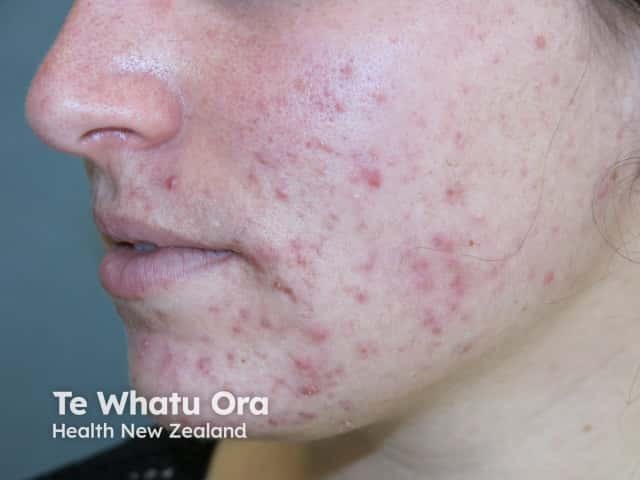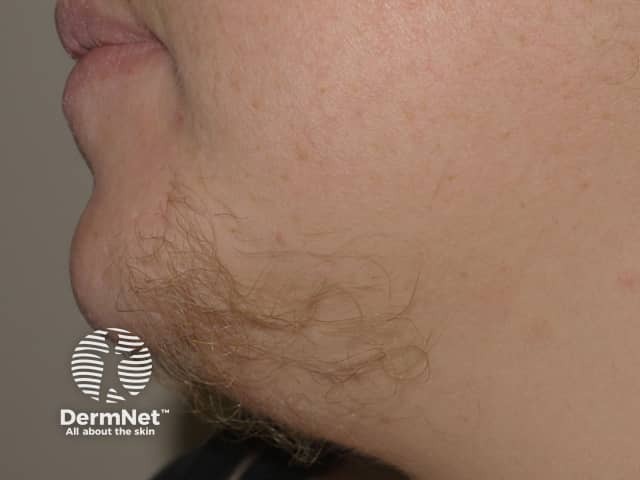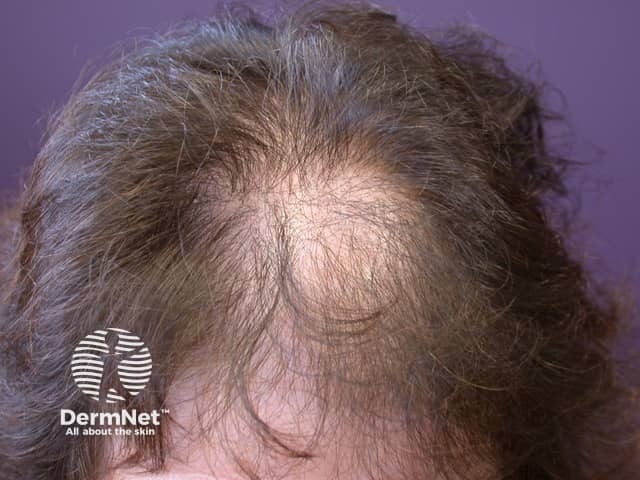Main menu
Common skin conditions

NEWS
Join DermNet PRO
Read more
Quick links
Author: Hon A/Prof Amanda Oakley, Dermatologist, Hamilton, New Zealand, February 2014.
Introduction Causes Effects Tests False negatives Consultation Hormone therapy
Hyperandrogenism describes excessive circulating male sex hormone (testosterone) in females and its effects on the body.
High levels of circulating male sex hormones in females may arise from:
The mechanisms that result in hyperandrogenism may involve:
Hyperandrogenism can lead to any or all of the following:

Acne

Hirsutism

Pattern alopecia
If there are symptoms or signs to suggest hyperandrogenism, baseline laboratory investigations may be useful to identify the exact cause.
The oral contraceptive should be stopped 6 weeks before testing. The ideal time is in the first 3 days of the menstrual period and the sample is best taken when fasting.
Elevated testosterone suggests an ovarian source may be responsible for the signs of hyperandrogenism. If the levels of testosterone are only mildly elevated, consider polycystic ovary syndrome, if they are markedly elevated, consider an ovarian tumour.
Elevated DHEAS suggests an adrenal source and an elevated 17-hydroxyprogesterone level suggests congenital adrenal hyperplasia.
Most females with acne/hirsutism have similar levels of hormones to unaffected women. This indicates their acne/hirsutism is not due to disease of the ovary, adrenal gland or pituitary gland.
Some women have more activity of the enzyme 5-reductase within their sebaceous glands. This leads to more male hormone dihydrotestosterone within the cell, which can explain acne and hirsutism. Other causes of acne include hereditary and environmental factors.
Most women with acne and/or hirsutism can be managed by a family doctor/GP or by a dermatologist.
Patients with acne and significant menstrual disturbance, severe hirsutism, suspected Cushing syndrome or acromegaly, total testosterone of > 5 nmol/L or other hormone abnormalities are best to consult an endocrinologist (hormone specialist).
Treatment for patients with acne includes topical antiacne agents, oral antibiotics such as tetracycline, antiandrogens (hormone therapy, including birth control pill) and oral isotretinoin. These can be used successfully in patients with and without hyperandrogenism.
Most women with hirsutism use physical methods of hair removal and may take the birth control pill.
However, when acne and/or hirsutism are unresponsive to conventional therapy because of hormone imbalances, more potent antiandrogens may be considered.